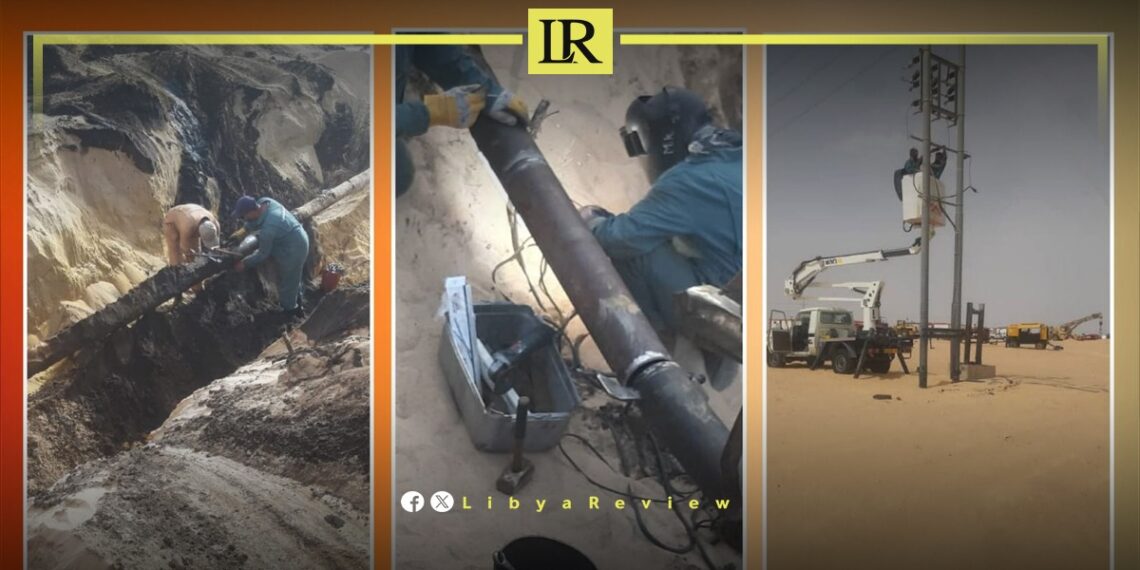Gulf Arab Oil Company has successfully reactivated nine previously shut-in oil wells, enhancing its daily production by an additional 4,000 barrels, according to a recent company announcement.
The company’s statement detailed that these operations were part of a strategic initiative aimed at increasing production and addressing issues with non-operational wells at Sarir oil field.
The press release outlined the concerted efforts led by the Head of the Management Committee, Engineer Mohammed Belqasim Bin Shatwan, with diligent monitoring by the Committee Member for Operations, Maintenance, Refineries, and Supply, Awad Aqweider. These efforts were supported by Sarir Field’s coordinated maintenance teams who executed critical repairs over the span of just one week.
“The teams at Sarir field’s maintenance coordination collaborated with the operations coordinator and all specialized departments and units to accomplish these precise repairs in a remarkably short period,” the company stated. The repairs included fixing faults in the high-voltage electricity network that powers four wells (C-178, C-221A, C-227, C-242), which had ceased operations. Additionally, the teams addressed leaks in the flow lines of four other wells (C-82, C128, C-264, C348) and completed electrical and mechanical connections for well C-309.
As a result of these timely interventions, nine wells were brought back online, collectively contributing around 4,000 barrels of crude oil daily.
The company’s management expressed deep gratitude to all the employees who played a part in this significant achievement, acknowledging their hard work and dedication during the extended working hours over the past week.
Earlier this month, Libya’s Acting Minister of Oil and Gas, Khalifa Abdulsadek, announced that the Italian company Eni has been granted rights for oil and gas development and extraction in the Hammada field.
In an Interview CNBC Arabia, the newly assigned minister said Eni will lead a consortium of companies in developing the field, pending approval from the National Oil Corporation and the Supreme Council of Energy.
Abdulsadek added that the confirmed gas reserves in the Hammadah field are estimated at around 22 trillion cubic feet, with minimal oil reserves currently. He expressed optimism that gas reserves would increase soon.
He noted that current oil production exceeds 1.2 million barrels per day, expected to reach 1.4 million by year-end and 2 million within three years. Oil represents nearly 95% of Libya’s income source.
“Plans for a public bidding round are set for the last quarter of this year, marking a significant investment opportunity in Libya’s oil sector, unprecedented in over 15 years,” he said.


